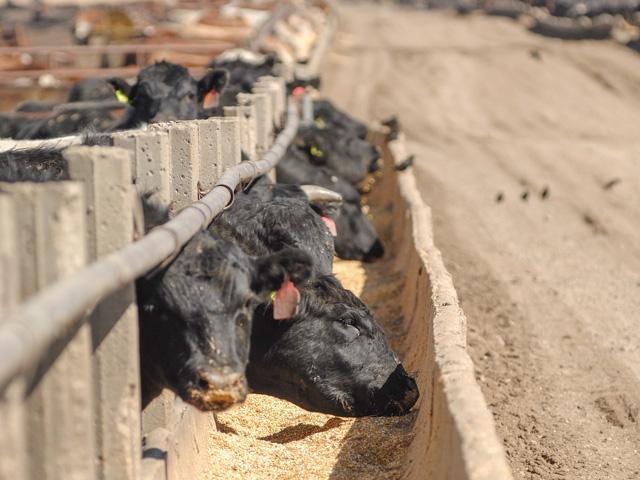Fed Cattle Lawsuit Against Big Four
Cattle and Beef Antitrust Litigation Combines Retailer and Producer Claims
OMAHA (DTN) -- In what is becoming one of the largest and most complicated antitrust cases against the country's four largest packers, a federal court in Minnesota has combined claims brought by several major retailers and wholesalers against the packers, along with similar complaints filed by livestock and agricultural groups.
While this federal lawsuit may drag out, cattle feeders may want to ensure they maintain records of fed cattle sales going back at least to the beginning of 2015.
The U.S. District Court for Minnesota is handling a case originally brought by R-CALF USA and the National Farmers Union (NFU) and others against Cargill Inc., JBS S.A., Marfrig Global Foods (National Beef) and Tyson Foods Inc. in 2019, alleging the Big Four packers violated multiple antitrust laws starting in early 2015 over fed cattle markets and prices.
Fed cattle slaughter -- steers and heifers -- averages more than 25 million head a year, according to USDA. The four largest packing companies process about 85% of those cattle, or roughly 21.5 million head annually.
A series of class-action and individual cases were filed against the large meatpackers in 2019, "alleging a conspiracy to generate unprecedented beef profit margins and manipulate the live cattle futures market," in violation of the Sherman Act, the Packers & Stockyards Act and the Commodity Exchange Act, as well as state antitrust laws, according to the order filed in October by U.S. District Judge John Tunheim and Magistrate Judge John Docherty, both out of the U.S. District Court of Minnesota.
P[L1] D[0x0] M[300x250] OOP[F] ADUNIT[] T[]
The multiple cases were consolidated to eliminate duplicative discovery, inconsistent pre-trial ruling and to conserve resources for everyone involved in the litigation.
Under a court decision last month, retailers and wholesalers including Albertson, Associated Grocers, Cheney Brothers, HyVee, Kroger, Subway, SuperValu, Sysco and U.S. Food had their claims consolidated into the same case already brought by NFU and R-CALF.
The case won't be settled overnight. Right now, both sides have until next August to file their responses to the plaintiffs' motion seeking class certification for the case. R-CALF, NFU and associated cattle feeders are seeking class-action status for everyone who sold fed cattle or traded live cattle futures or options from Jan. 1, 2015, to the present. The ruling on that motion would likely happen sometime in the fall of next year.
"If the court grants that motion, everyone who did sell cattle to one of the Big Four, or traded live cattle, would be included in the plaintiffs' proposed class without the need to file separate suits or engage separate legal counsel," according to a news release from NFU and R-CALF.
Bill Bullard, CEO of R-CALF, said cattle producers right now do not need to do anything if they sold cattle to the large packers because they are already part of the class of plaintiffs the litigation seeks to represent. Producers should maintain their sales records to the packers, though.
"They don't need to do anything other than keep track and have documentation that they did, in fact, sell fed cattle or that they did, in fact, engage in trading contracts on the CME," Bullard said.
Asked about whether having retailers or wholesalers helps or hurts the case for producers, Bullard said, "They're going to add an element to the case that is beyond what we know. And it's going to have the effect of slowing down the case because there are more parties involved. But it will help us, I guess one way to put it, get to the bottom of what is happening in the marketplace."
The case has been renamed to "In re Cattle and Beef Antitrust Litigation," No. 20-cv-1319 in the U.S. District Court of Minnesota.
Chris Clayton can be reached at Chris.Clayton@dtn.com
Follow him on Twitter @ChrisClaytonDTN
(c) Copyright 2022 DTN, LLC. All rights reserved.






